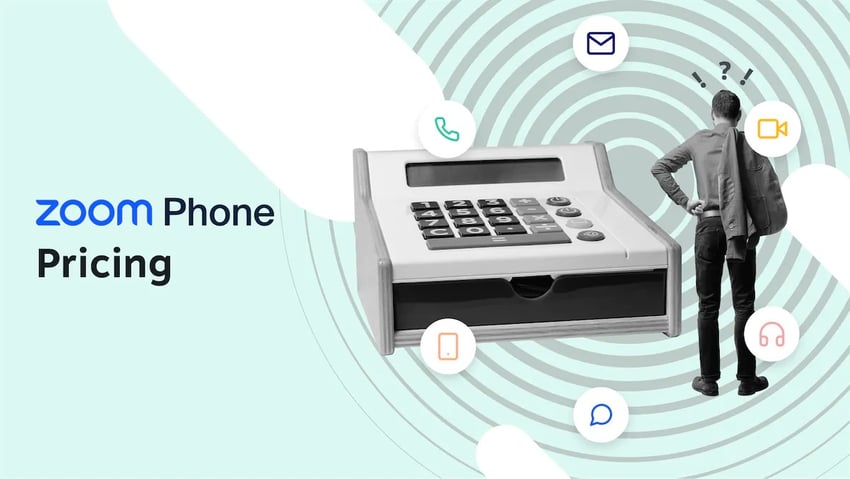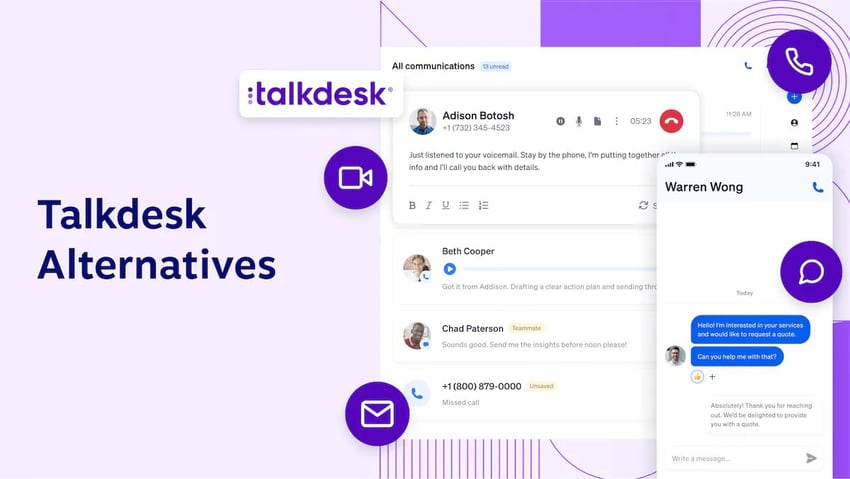Business communications have come a long way since landlines. While plain old telephone service (POTS) ruled supreme throughout most of the 20th century, the rise of internet-powered phone services is disrupting this space.
VoIP phone systems are becoming increasingly popular among both small businesses and large enterprises. However, traditional copper wire landlines still have their place in today’s communication landscape.

This article explores the key differences between traditional landline phones versus modern VoIP solutions to help readers decide which solution makes the most sense for their phone communication requirements.
We compare the technology behind each system, break down pricing differences, analyze redundancy and emergency services, and more to provide a detailed yet easy-to-grasp comparison to help you choose one that best fits your business needs.
How Landlines Work
Landline phone systems are a type of analog phone system installed by the local phone company. It’s also known as Plain Old Telephone Service (POTS).
Analog phones function in the same way they did more than a century ago. Sound is transmitted using electrical pulses on a wire. These wires connect to the phone service provider.
A company would configure an on-premises Private Branch Exchange (PBX) with one or more telephone lines. A PBX creates an internal phone network, placing employees onto a shared telephone system.
Dubbed “copper wire,” voice service can only travel wherever you trenched and laid wires. Traditional phone service is subject to bad weather, installation, and expensive long-distance calls.
But landlines do offer some benefits. Landline phones use widespread existing infrastructure, do not require additional bandwidth, and support legacy analog equipment better than VoIP systems.
How VoIP works

Voice over IP, or “VoIP” for short, is also known as a digital phone service or hosted phone service. It works by converting sound into data packets or digital signals and transmits them to a VoIP provider.
VoIP service providers then direct calls between the Public Switched Telephone Network (PSTN).
This happens in milliseconds thanks to blazing-fast cable or fiber broadband internet connections. VoIP lets small businesses get all the best telecommunication features for a fraction of the cost.
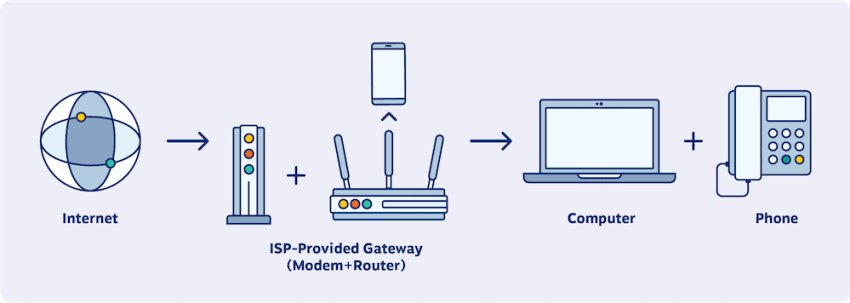
With VoIP, companies can place and receive calls without any extra hardware. All they need is a computer, laptop, headset, or cell phone to use their business phone system.
VoIP uses your existing internet connection for phone calls. It also includes many advanced calling features such as auto-attendants, IVR, advanced call routing, and conference calls, plus other add-ons built into the service.
Keep in mind that employees are most comfortable with a desk phone. IP phones turn sound into digital signals and maintain connectivity with a VoIP provider.
Related: What Is a Virtual Phone System & How Does It Work?
Key Differences Between Landlines and VoIP
Costs
VoIP services offer significantly lower costs compared to landline telephones. VoIP hardware like IP phones and routers have become very affordable.
In addition, monthly VoIP subscription fees are typically lower, and long-distance or international calls often cost less or are even included. Many providers offer free smartphone softphone apps so no extra hardware is required.
In contrast, landlines involve high installation and equipment fees, long-distance charges, and potentially higher monthly bills that can easily cost hundreds of dollars per user per year. This makes them difficult to justify in the modern remote work era with widespread broadband internet access.
Top virtual phone services like Nextiva bundle advanced features into a simple low monthly rate starting at $15 per user.

Features
VoIP matches landlines in core call quality while providing additional capabilities. With a fast, stable internet connection, calls are crystal clear. Unique IP phone features like auto-attendants, call queues, forwarding, and recording enhance productivity.
Mobility is a major benefit, as VoIP devices work anywhere with internet access, not just on a wall landline. Video calling and conference calling also help connect today’s remote teams.
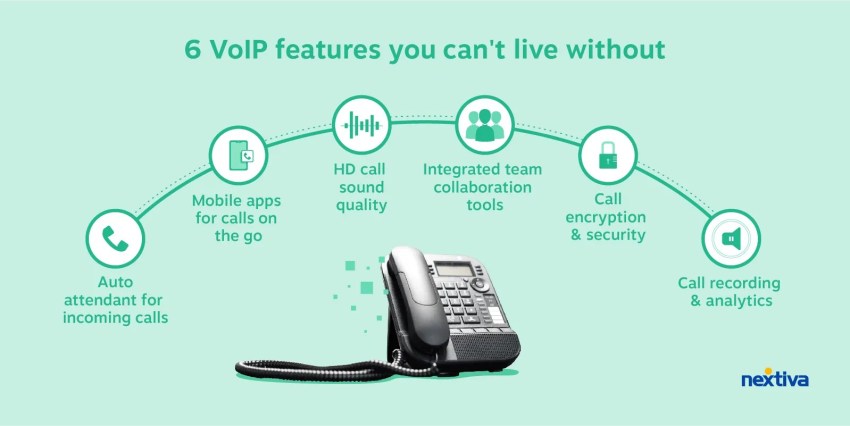
Reliability
VoIP relies on consistent, high-speed broadband internet, which is susceptible to disruptions from power outages or network issues.
Landlines can remain operational during internet and electricity failures. However, leading business VoIP providers deliver excellent uptime with geographically redundant data centers and automatic failover.
Scalability
Cloud-based VoIP systems scale seamlessly by adding extra users, features, or service locations through simple software updates.
Landlines require expensive hardware upgrades and on-premise installations to add capacity.
Implementation
VoIP setup is fast and hardware-light — usually requiring just an IP phone or desktop app download to get started. There’s no technician wiring or installation process. Phone number porting from landlines also tends quicker, often completed in 1-2 business days.
Landlines will generally work anywhere with existing analog phone infrastructure. But VoIP relies on strong Wi-Fi, so internet quality must be vetted beforehand.
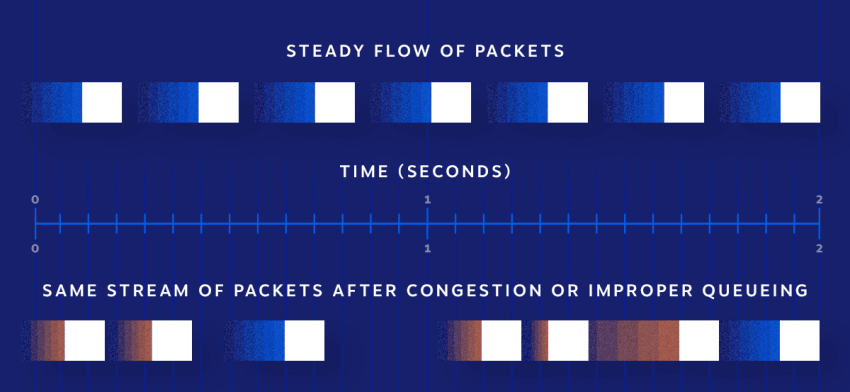
Security & privacy
VoIP data transmission may have vulnerabilities to interception since calls occur over the public internet. Leading business systems encrypt data to safeguard sensitive conversations. Landlines offer inherent security via closed telephone networks.
VoIP calls can be encrypted just like any internet traffic. Power and internet dependency also make VoIP systems more prone to service disruptions.
But, for most modern organizations, the advanced features and cost savings of VoIP outweigh the risks. You just need to choose a secure VoIP phone service that offers encryption and data security.
| Functionality | VoIP Phones | Landline Phones |
|---|---|---|
| Phone calls (PSTN) | Yes | Yes |
| Nationwide long-distance | Included | Optional |
| Requires internet | Yes, 100 Kbps per line | No |
| Technology | IP telephony (SIP, TLS, and SRTP) | Analog voice signals |
| Monthly cost | $15–$35 | $35 |
| Phone number privacy | Included | Varies |
| Call encryption | Yes (TLS & SRTP) | No |
| Integrations (CRM, text messaging, surveys) | Yes | No |
Advantages of Using Landlines
Analog phone systems aren’t always the wrong choice. In some cases, they can be the best option for business communications.
1) Ubiquitous infrastructure access: Landlines tap into legacy telephone infrastructure reaching the vast majority of developed areas. This presents near-universal voice service potential despite lacking the speed to support advanced digital features.
2) No bandwidth resource drain: Landlines do not require sharing broadband internet bandwidth resources for voice calls. This provides call reliability advantages for the areas with slow or no broadband access where VoIP would struggle.
3) Legacy analog system support: Some business premises equipment like older alarms, faxes, and modems rely on analog signals passed through a landline connection. While Analog Telephone Adapters can bridge this gap, natively analog landlines avoid any translation issues.

In situations lacking broadband infrastructure or needing to run dated analog equipment, retaining landline service can make economic and practical sense.
However, most modern businesses will outgrow these limitations over time, making VoIP systems preferable for advanced functionality, cost savings, and future-proofing.
Advantages of Switching From Landlines To VoIP Systems

1) Superior reliability
VoIP uses the same proven and redundant internet infrastructure that powers many mission-critical business systems today.
For example, leading VoIP providers like Nextiva use multiple, geographically dispersed data centers across North America to deliver enterprise-grade reliability.
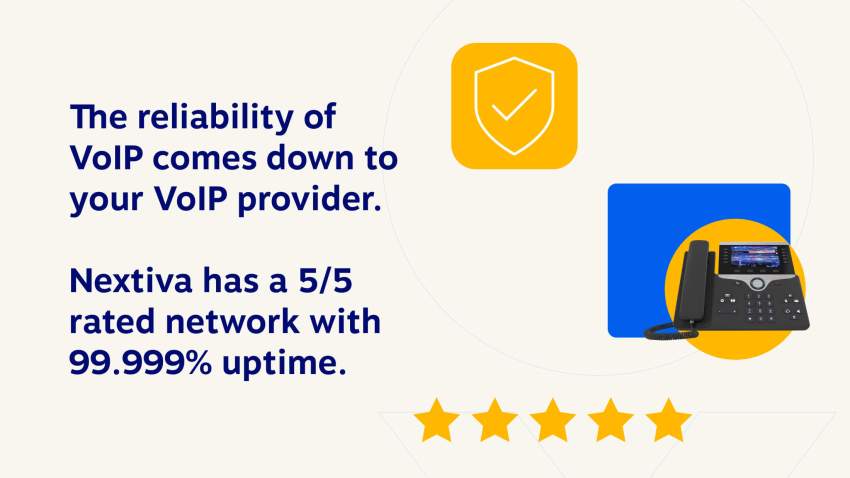
This means your phone service continues uninterrupted even if one data center goes offline. VoIP systems intelligently route calls and data packets to reach their destination reliably.
As a result, you avoid busy signals, static, and downtime typically associated with analog phone systems. If you do experience a temporary internet or power outage, calls can be automatically forwarded to cell phones.
Top VoIP providers have dedicated support teams and account management. They continuously update software, cybersecurity, and infrastructure monitoring. Landline customer service varies greatly by provider.
2) Greater flexibility & scalability
VoIP technology enables work-from-home and remote work capabilities without clients noticing any difference in sound quality or reliability. Your office phone number is secure yet accessible anywhere via mobile apps and softphones installed on laptops and smartphones.
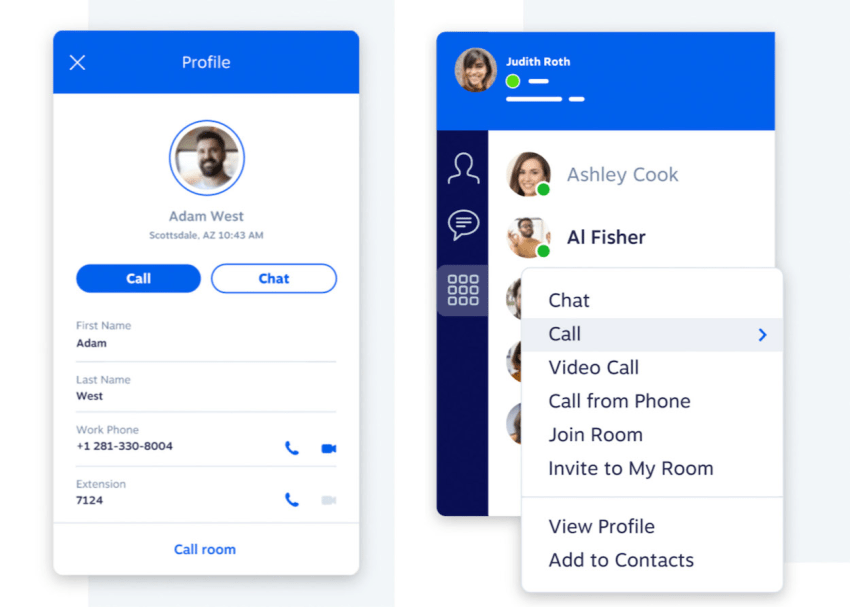
This flexibility boosts productivity by eliminating commutes and office distractions.
Employees can efficiently handle calls and voicemails via email from anywhere. And features like call forwarding and “find me, follow me” calling make it easy to route calls to the right people at the right time, even when team members are out of the office.
VoIP systems are also highly scalable, making adding new users, locations, and features easy through simple software updates.
Landline systems require expensive new hardware and wiring to add capacity.
3) Superior call quality
Cloud-based VoIP systems leverage wideband audio codecs to deliver clear, high-definition voice quality on every call. This is a stark improvement over crackly, low-fidelity analog phone calls.
With VoIP, both sides of the call experience sharp, static-free audio with less repetition and miscommunication.
4) Fast setup
VoIP systems can be set up quickly. With minimal hardware requirements, users across multiple locations can start making internet-based calls in minutes after downloading a simple smartphone app.
Most organizations can fully migrate from legacy landlines to VoIP phone services quicker than installing new landlines. Careful pre-planning and working with experienced VoIP vendors simplify the transition.
5) Advanced features and integrations
VoIP systems integrate seamlessly with popular business apps like CRM software, email, calendars, etc. This enhances productivity by bringing real-time communications and collaboration tools together in one place.
VoIP providers also offer call analytics dashboards to track real-time usage metrics and record trends. This provides visibility into call volumes, wait times, abandoned calls, etc. Landlines do not collect or report analytics.
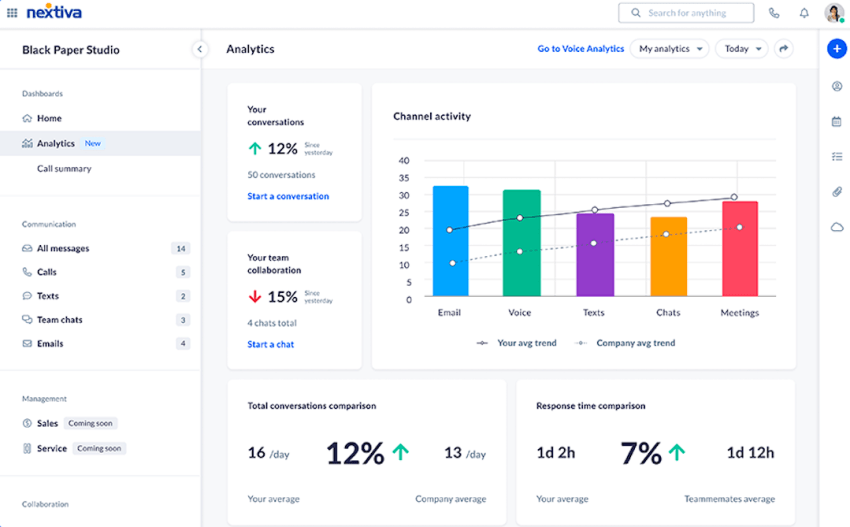
You gain access to a rich suite of calling features like call recording, auto-attendants, mobile apps, virtual fax, toll-free numbers, and unlimited calling plans.
6) Significant cost savings
VoIP services cost significantly less compared to conventional business phone services. The advanced technology minimizes infrastructure while maximizing efficiency.
With VoIP, you only pay for the calling capacity that you need instead of being locked into inflexible plans. International calls and adding new extensions cost a fraction of analog phone services. Overall, most businesses can expect 40% to 60% savings on their monthly phone bills with VoIP.
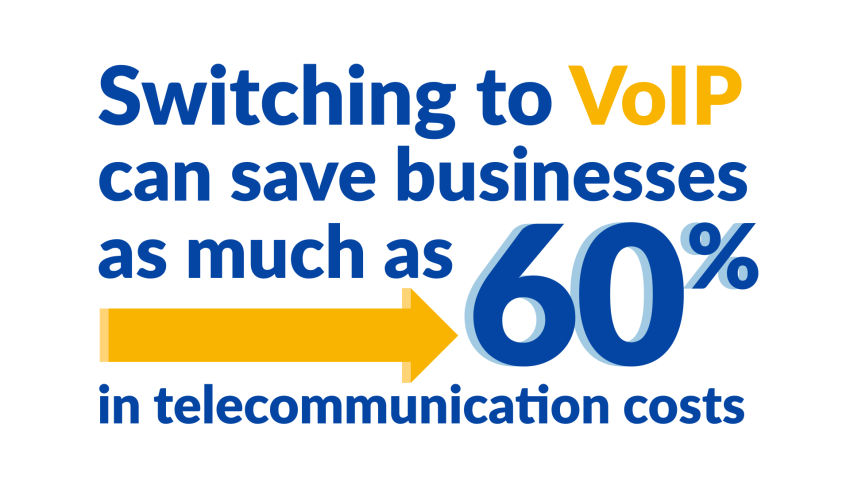
Common VoIP Drawbacks & How To Mitigate Them
Internet dependency
VoIP systems rely on broadband internet connectivity to function. If your business experiences an internet or power outage, calls will be disrupted.
However, leading VoIP providers like Nextiva use geographically redundant data centers and optimize latency. They also offer automatic call forwarding to cell phones during disruptions and battery backup options. Having a secondary wired phone line can also act as an extra safety net.
Call quality issues
The quality of VoIP calls depends on internet bandwidth and connectivity. If your network experiences congestion, calls may stutter or drop unexpectedly.
Invest in a business-grade router, high-speed broadband, and QoS settings to prioritize traffic. Wired Ethernet is preferable to spotty Wi-Fi. Stay up to date with the latest phones that support advanced voice codecs.

Limited mobility support
While VoIP devices can be used anywhere with a solid internet connection, most providers don’t integrate well with satellite networks. If you operate in remote areas with limited connectivity, traditional landlines may still be preferable.
Some businesses maintain wired landlines for stationary locations with no internet or mobile phone coverage while using VoIP for everyone else. Doing so gives you the best of both worlds in a hybrid model.
Security vulnerabilities
Because VoIP traffic flows over the public internet rather than a closed telephone network, it can be more vulnerable to cyber threats like hacking, eavesdropping, and information theft.
Reputable business VoIP providers make security a top priority, encrypting call traffic and maintaining robust firewalls. ITSPs that have SOC2 compliance or other security accreditations provide a higher level of VoIP security.
These strategies help minimize vulnerabilities and make VoIP systems reliable for most modern organizations. Managing expectations around internet reliability and working closely with VoIP vendors ensures the best results.
Which Phone System Is Best for Businesses?
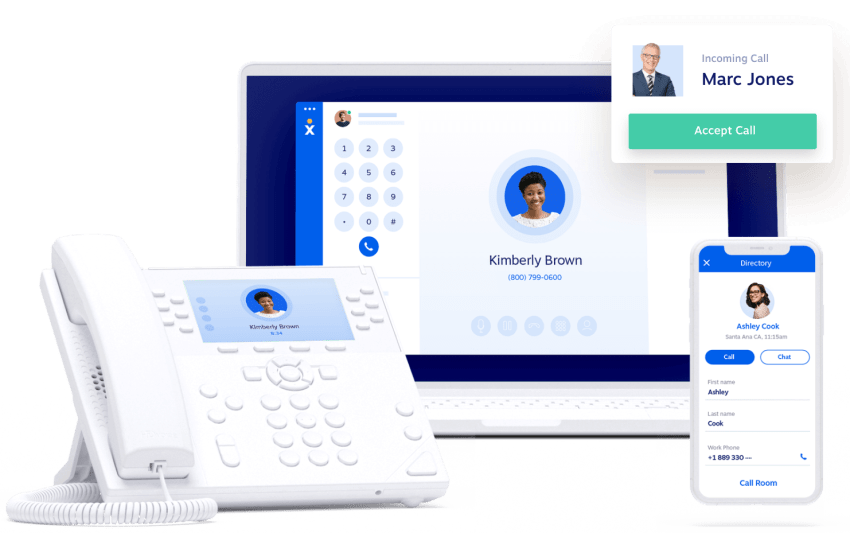
A business counts on its phone system to keep employees connected and to serve customers. Most workplaces now have an operational need to enable staff to work from home.
Landline phone service can’t match business VoIP’s flexibility, features, and ease of use. If your existing phone system works and you have no plans to change how you use it, it might be acceptable to keep the landline.
A cloud VoIP is ideally the best phone system for businesses. Reputable VoIP providers like Nextiva offer extensive coverage with multiple redundant data centers, along with dozens of advanced features.
Nextiva is the top choice among enterprises and small businesses alike. It offers the most scalability for their teams to communicate. With Nextiva’s reliable VoIP services, uptime is never an issue. Plus, it can cut VoIP costs by more than half.
Related: VoIP FAQ: 71 Questions & Answers About All Things VoIP
Start calling for just $15/mo.
See why over 100,000 businesses switched to Nextiva. Now you can get it all for $15/month per user.
Landlines vs. VoIP FAQs
VoIP call quality has improved significantly over the years. With a reliable, high-speed internet connection, the audio quality is often indistinguishable from that of a landline. The main factors affecting VoIP call quality include internet bandwidth and jitter/latency. Since it’s all digital, the sound isn’t susceptible to interference from motors or poor-quality wiring.
Yes, a VoIP phone system like Nextiva has proven backup features, like softphone calling apps, call forwarding, video conferencing, voicemail transcription, and even robust call queues to hold calls until agents are available again. Overall, though, VoIP systems typically have excellent uptime. Landlines, however, are prone to weather issues and installation errors and have a single point of failure.
Yes, but don’t cancel your old phone service yet. Through porting, also known as a “port-in,” you keep your existing phone number when establishing your new business VoIP provider. The phone number porting process is easy, and you’ll be guided step-by-step.

















 VoIP
VoIP 









